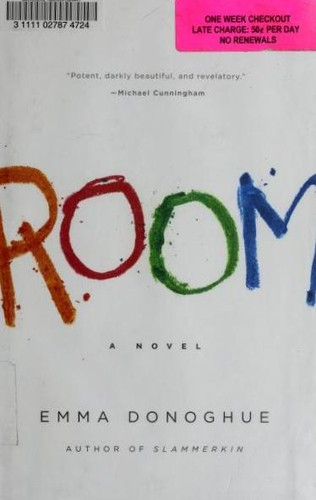Dubi reviewed Room: a novel by Emma Donoghue
Review of 'Room' on 'Goodreads'
5 stars
I don't remember where I read about this book, but it was described as sensational, and it was. But it was also a strange book. It kind of feels like two books stuck together - the first book is the story of the escape from Room, and the second book the story of life after the escape. After the escape, the second half of the book feels like an extended epilogue. Or the first book might feel like a very long exposition for the second one. But somehow together there's something a bit jarring about the transition.
Writing from the perspective of a child is a bit like an actor doing the role of someone with an intellectual or mental disability. You can bungle it up real bad, but if you don't completely botch it, it's a sure way to get heaps of praise. Donoghue pulls it off well in …
I don't remember where I read about this book, but it was described as sensational, and it was. But it was also a strange book. It kind of feels like two books stuck together - the first book is the story of the escape from Room, and the second book the story of life after the escape. After the escape, the second half of the book feels like an extended epilogue. Or the first book might feel like a very long exposition for the second one. But somehow together there's something a bit jarring about the transition.
Writing from the perspective of a child is a bit like an actor doing the role of someone with an intellectual or mental disability. You can bungle it up real bad, but if you don't completely botch it, it's a sure way to get heaps of praise. Donoghue pulls it off well in the book. But it was another voice that troubled me when I read the book - that of anyone from the media. Clearly, Donoghue has a very poor view of anyone from the media, but this leads her at times to write things that seems completely unrealistic in an otherwise very believable world. She doesn't settle for presenting journalists as insensitive and jaded. They appear to be deliberately mean. The most obvious example, particularly since it's referred to a number of times subsequently, is the "goes down stairs like a monkey" quote from a newspaper article about Jack and his mother. No journalist will use such an analogy (if only because it doesn't make sense), and it seems designed to do nothing but raise the reader's anger at the media. In an otherwise emotionally precise and engaging book, it felt like a very crude way to get an emotional response from the reader, and the many reminders of it subsequently only detracted from an extraordinary experience.

